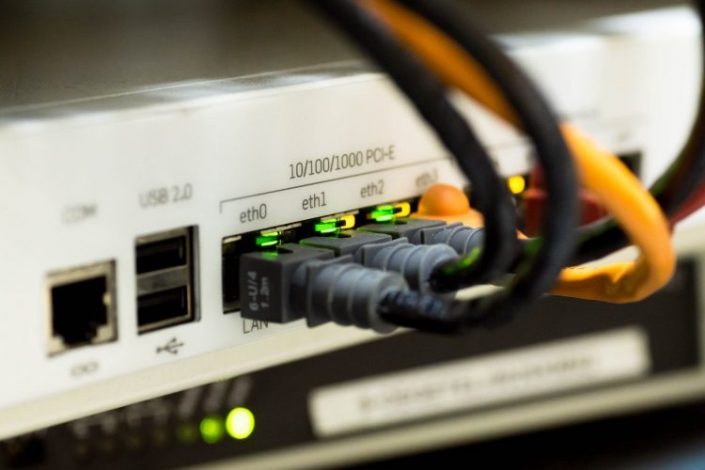The Kenya Information and Communication (Amendment) Bill 2025, introduced by Aldai MP Marianne Kitany, proposes significant changes to internet service billing and regulation in Kenya.
The bill seeks to replace the current flat-rate, unlimited internet packages with a metered billing system, alongside imposing new requirements for data collection, reporting, and age verification.
The proposed “Kenya Information and Communication (Amendment) Bill 2025,” introduced by Aldai MP Marianne Kitany, mandates ISPs to adopt metered billing systems, a stark contrast to the bundled and unlimited packages many consumers currently depend on.
If enacted, the law would require providers to assign each customer a unique “internet meter number,” track data consumption in real time, and generate invoices based solely on usage.
The bill also stipulates that consumers must be able to verify these bills and that providers submit annual billing system reports to the Communications Authority of Kenya (CA).
Ostensibly, the bill aims to enhance consumer protection by addressing concerns about opaque billing practices and undisclosed data caps. As the demand for reliable internet surges, particularly in urban centres, the promise of transparent billing resonates with many Kenyans.
Metered billing, which calculates charges based on time-based usage metrics, is typically employed for long-term subscriptions.
Key Provisions of the Bill
Metered Internet Billing
-
-
ISPs will be required to assign every customer a unique “internet meter number.”
-
Data consumption will be tracked in real time, and invoices will be generated based solely on actual usage.
-
Consumers must be able to verify their bills, and ISPs must submit annual billing system reports—including meter numbers—to the Communications Authority of Kenya (CA).
-
This approach mirrors utility billing, where charges are based on consumption rather than a flat monthly rate
-
However, beneath its consumer-friendly facade, this regulatory shift carries broader implications.
The move effectively transforms ISPs into utilities, burdening them with precise tracking, compliance reporting, and extensive administrative record-keeping.
For smaller ISPs, which often operate on thin profit margins and rely on bundled, flat-rate offerings to compete, the costs of implementing such metering and billing infrastructure could be substantial.
These regional ISPs are crucial for expanding internet access in rural and remote areas, and their proliferation has increased competition, significantly reducing internet prices for low-income households. The amendment provisions risk becoming overly burdensome, potentially forcing many smaller providers out of the market and thereby stifling innovation and entrenching dominant players.
For consumers, while the ability to see exact data consumption might reduce overcharging, it could foster an environment of excessive rationing, detrimental to internet access. In a country striving for digital inclusion, this billing model may discourage high-bandwidth activities like online learning or video conferencing among lower-income users.
Problematic KYC Rules and Increased Oversight
The proposed amendment also introduces stringent Know Your Customer (KYC) rules, requiring operators to collect and securely store detailed identification information from subscribers before providing services. This includes full names, ID numbers, birth dates, gender, and physical and postal addresses for individuals, and registration particulars for corporate or statutory bodies.
Furthermore, the bill redefines “telecommunication operator” to explicitly include ISPs, thereby bringing them fully under the Communications Authority’s jurisdiction. This expansion of authority comes with stricter enforcement, harsher penalties, and deeper state visibility into private sector operations.
While the bill states that user details will be kept confidential unless required for criminal or civil proceedings, it lacks specific guidelines on data security protocols or audits of billing algorithms. In an era of heightened global conversations around data protection, this omission could lead to weak oversight.
The proposed amendment bill also imposes a hefty fine of KSh 5 million for operators who fail to adhere to the prescribed requirements, including the implementation of the metered billing system or proper user registration. Existing ISP licenses will remain valid only until expiry, after which all providers must comply with the new framework to renew operations.
Government Snooping Concerns and Age Verification
Critics argue that if the proposed amendments to the country’s information and communication law pass, the government could easily “snoop on your online activities.”
Aldai MP Marianne Kitany asserts that the system will “generate invoices based on actual consumption and allow customers to verify their bills, a move [Kitany] argues aims to protect consumers and regulate internet use more effectively.”
ISPs would also be required to submit detailed data from these billing systems, including each subscriber’s meter number, to the Communications Authority of Kenya (CA) at least once every financial year.
The bill’s memorandum of objects and reasons states, “The bill requires internet service providers to develop and deploy quality metered billing systems capable of monitoring customer usage, converting it into readable details, and generating invoices that reflect the value customers receive from various internet services.”
Additionally, the bill introduces strict age verification rules for social media users. Both new and existing users of platforms like WhatsApp, Facebook, Instagram, and LinkedIn would be required to confirm their age using their national identification cards before gaining access.
Content Service Providers (CSPs) and Application Service Providers (ASPs) would be mandated to enforce these verification procedures, with mobile service providers ensuring SIM card registration aligns with these requirements.
Kitany highlighted the necessity of such measures, noting that current online platforms’ age-verification methods are easily bypassed by users entering false birth dates or pseudonyms.
“The society as a whole, including all participants of the internet ecosystem, is responsible for safeguarding the rights of children in their access and use of information, communication, and technological products and services,” the Bill reads.
The bill, dated February 21, was received by the National Assembly on March 7.
Kitany argues that if passed, the proposed law will help mitigate consumer exploitation and “secure the economic interests of internet users” in line with Article 46 of the Constitution.
However, “The enactment of this bill may occasion additional expenditure of public funds,” the MP submits.




